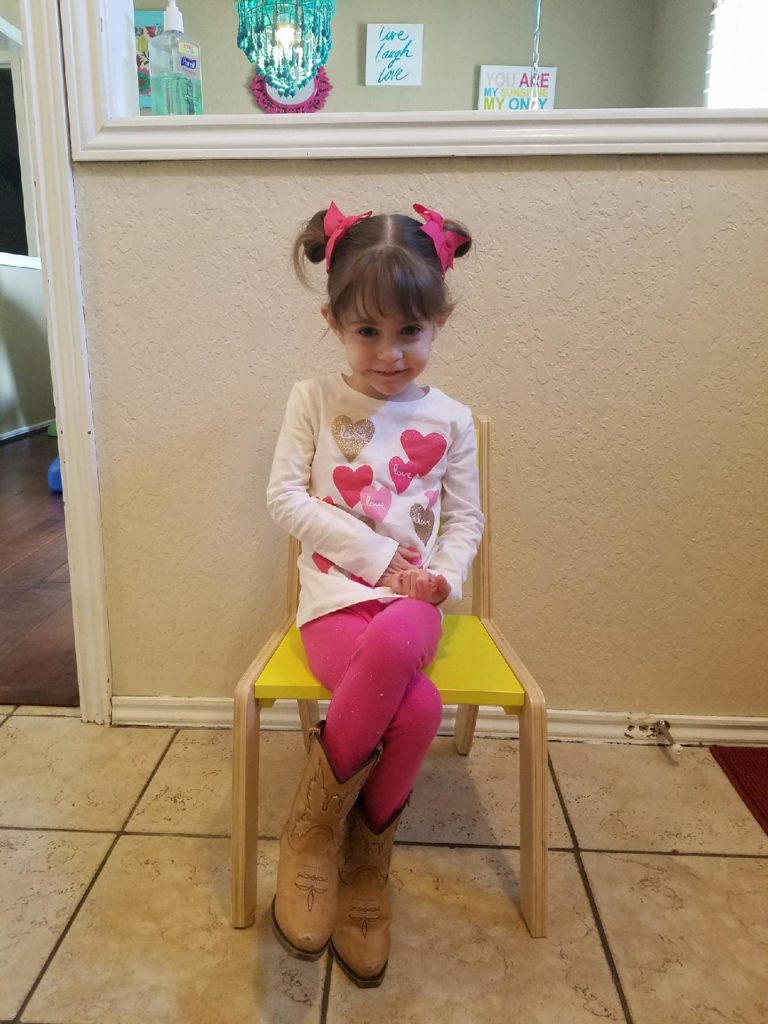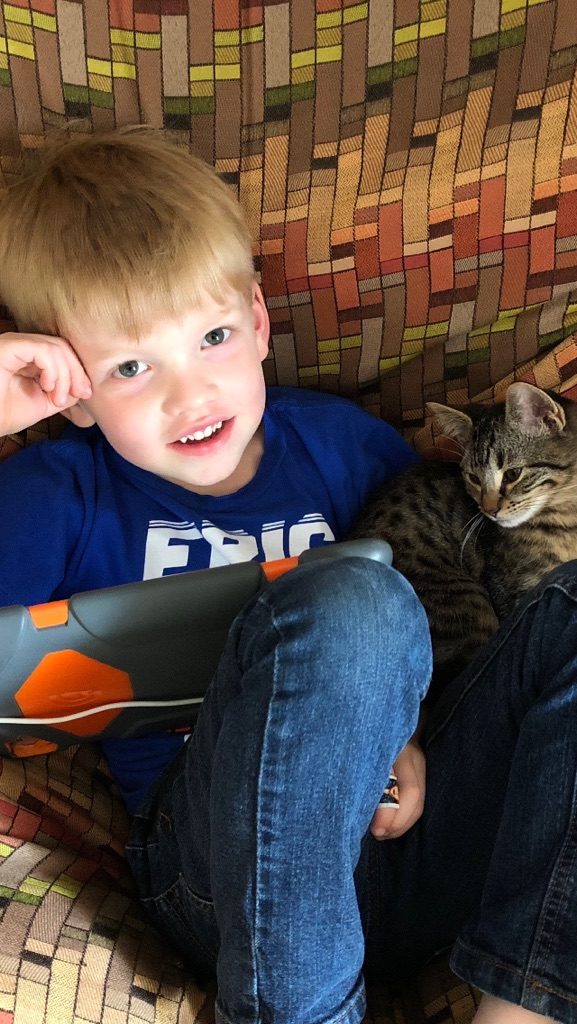



Three out of the four kids pictured above have developmental delays. Can you tell which one doesn’t? No? Didn’t think so.
These kids, all of whom are friends of mine, have a variety of diagnoses including apraxia of speech, fine and gross motor delays, an autism spectrum disorder, and feeding challenges that require a feeding tube. I’ll ask another way: Can you look at these kids and tell me who has what? No? Didn’t think so.
The Invisible Diagnosis
Many developmental delays are invisible to the naked eye until a child is in a particular situation where he or she doesn’t have the appropriate skills to perform a task or to handle what’s being asked of him or her.
Developmental delays occur for a lot of reasons including premature birth or a medical diagnosis, or often times for no reason at all — which can be especially frustrating for a parent. In our case, we have a reason for our daughter’s developmental delays, as she was born extremely premature. Having a reason does ease some of my angst, but it doesn’t make our daily struggles any easier.
You may ask, “What does it mean to be developmentally delayed?” Every child is different and develops at a different pace. But, there are baseline skills that experts have determined children should meet within specific age ranges. A one year old who is not yet crawling, a three year old who is not yet talking, a five year old who may not be able to run, jump, or hold a pencil correctly — these can all be examples of developmental delays. And there are many, many more. Some are less extreme and some are much more extreme.
Fear of Judgment
As a parent of a child who has global development delays, meaning she’s delayed in a variety of areas, one of the hardest parts is that she looks totally “normal.” I hate that word, but in this case, I hope it gets my point across.
 “She looks great.”
“She looks great.”
“You would never know anything was wrong with her.”
She’s about to turn four, and I’ve heard variations of these phrases for several years now. People are obviously well-intentioned, and these are true statements. She does look great, and many times you would never know. To most outsiders, her delays are invisible. But not to me, my husband, our nanny, close friends and family, or the many therapists who work with my daughter on a weekly basis.
These delays become visible in social situations where she is not yet able to do what other kids her age are doing. And that’s when my mom heart breaks. I worry about what the other parents or kids are thinking.
“Why is she not eating? Why can’t she jump up and down like the other kids? Why is it hard to understand what she’s saying? Why doesn’t she make eye contact when she talks to people?”
All of these imaginary scenarios run through my head until I just want to whisk her away and protect her forever. But I can’t, and I know that.
A Community of Resources
You may be asking yourself, what’s the point of sharing this? Well, I have two points I’d like to make: one for those parents whose children also have developmental delays and one for those parents who do not.
For the other parents out there who are hopefully nodding their head in agreement with what I’m saying, you are not alone. I’m with you. The other parents I talked to when writing this are with you. We support you, empathize with you, and welcome you into our club — a club that you didn’t necessarily want to join but one that is tight knit in that we understand and are here to offer support. There is even a Neighbor Group dedicated to moms dealing with similar challenges. Join us. Ask us questions, share your stories, and find ways to connect with others who get it.
And for the parents whose children are not delayed, I have two favors to ask. One, celebrate that this is not your daily life. Be thankful for your typically developing child and understand what a blessing it is. Two, when you see a child who may be a similar age as one of your children but who doesn’t seem “quite right,” don’t judge or make assumptions. In fact, here are some helpful things not to say.
For those parents who are just beginning to navigate the road of developmental delays, a variety of resources exist for you. Check out your local medical and developmental needs services. And read testimonials from other special-needs moms who wonder what the the hell normal really is, who defend their right to just be a mom at times, but who wonder whether they will ever sleep again.
I wouldn’t change my daughter’s various diagnoses for the world. They have given me perspective I would have never gained otherwise. It is exhausting, frustrating, and heartbreaking at times. But, it’s at those times when I remember that I am not alone.













